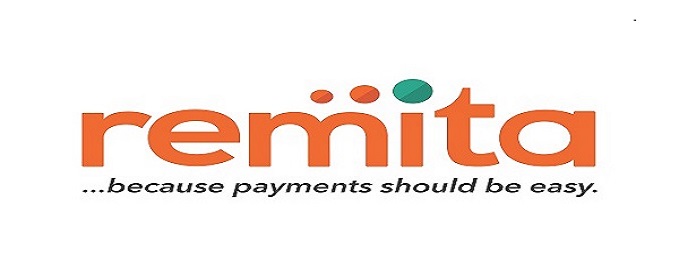E-Business
Ekiti Adopts Remita for Integrated Funds Collection

Ekiti State Government has adopted Remita, a leading electronic payment platform in Africa, for collection of funds due to its Ministries, Departments and Agencies, for both formal and informal sectors.
This announcement was made as part of Ekiti State Government’s deepening of the implementation of the state’s Treasury Single Account initiative.
Powered by SystemSpecs, the financial technology and human capital software powerhouse and owners of Remita, the project covers 70 MDAs and institutions in Ekiti State.
The Remita platform will enable payers to seamlessly make payments to Ekiti State MDAs and institutions, using any of the Remita channels (State-wide Payment Points, Bank Branches (commercial and microfinance), Debit/Credit Cards, Internet Banking, PoS, Mobile Wallet and USSD) that is most convenient for them.
The State is able to issue invoices for every transaction; each transaction is traceable from the point of invoicing through the payment journey and into the State’s bank statement.
Each MDA is able to verify transactions receipts independently and securely before service delivery.
The state also has access to real-time balances of its accounts at any point in time.
“As part of our commitment to transform the lives of the good people of Ekiti state, we have commenced the accelerated implementation of the Treasury Single Account to entrench accountability and transparency in the management of the finances of our dear state,” said Dapo Kolawole, Ekiti State Commissioner for Finance.
Kolawole added: “We have appointed SystemSpecs, the same firm that delivered the Federal Government of Nigerias TSA project to deploy its Remita platform for Ekiti State. We are not only delighted that individual and corporate citizens have more options with which to pay, but also that government can also more easily know its true financial position at any time.”
This development would also enable the state to participate in the 2018 Sustainable Development Goals conditional grants scheme initiated by the Federal Government.
“We are delighted to partner with Ekiti State in bringing efficiency, transparency and increase to the state’s revenue collections. We appreciate the opportunity to bring our experience and technology to the table in support of the state’s drive to reposition its finances for accelerated economic development. SystemSpecs has done same with the Federal Government and other states in Nigeria, and we are starting to the same in other African countries,” said Demola Igbalajobi, Divisional Head, Remita Payment Gateway and Infrastructure, SystemSpecs.
Launched in 2005, Remita is a leading financial technology solution that has been tested and trusted by individuals, businesses of all sizes including conglomerates, and governments at all levels, in and outside Nigeria for the management of their payments, billing, collection and payroll management systems that deliver exceptional Real-Time Transaction Tracking and Reporting across multiple platforms.
E-Business
NCC Vows to Tackle Online Infringement, Block Illegal Music Websites

Nigerian Copyright Commission (NCC) has pledged to enforce its legal obligations to combat online intellectual property infringement and urged commercial music users to obtain proper licences from rights holders or their representatives.

The Commission stated that this ensures creators are fairly compensated, supporting the music industry’s sustainable growth.
In a statement commemorating the 2025 World Intellectual Property Day, themed “IP and Music: Feel the Best of IP,” the NCC announced plans to enforce the Copyright Act 2022, which allows for the takedown of infringing materials and blocking of websites hosting illegal content.
Signed by Mrs Ijeoma Egbunike, director of Public Affairs, the statement outlined an aggressive anti-piracy campaign in collaboration with the private sector, targeting the online environment.
Egbunike affirmed the NCC’s commitment to establishing enforceable standards for transparency, digital audits, and real-time royalty reporting to protect creators’ rights. She stated, “The NCC will continue to champion policies that support the growth of the music industry, improve the livelihoods of Nigerian musicians, and foster a culture of creativity and respect for intellectual property.”
Despite the global success of Afrobeats and other Nigerian genres, the NCC noted that many musicians face low royalty returns due to rampant digital piracy.
To address this, the Commission revised its Collective Management Regulations to enhance transparency and accountability among Collective Management Organisations (CMOs).
The NCC emphasised that proper licensing is a legal obligation and vital for Nigeria’s creative economy, stating, “Music must feel the beat of intellectual property for the full potential of creativity to be realised.”
The Commission highlighted that creators’ livelihoods depend on fair royalty compensation.
Recent enforcement measures include the NCC’s designation by the Attorney-General of the Federation as an authority under the Proceeds of Crime (Recovery and Management) Act 2022.
This, combined with the Copyright Act 2022, empowers the NCC to order takedowns and block illegal music distribution websites.
E-Business
FG Warns Nigerians Against Growing Threat of Cyber Slavery in West Africa

The Federal Government, has warned Nigerians against the growing threat of cyber slavery within the West African sub-region.
The Ministry of Foreign Affairs, in a statement issued in Abuja by Kimiebi Imomotimi Ebienfa, acting spokesperson, noted with grave concern the alarming rise of cyber slavery across parts of West Africa, targeting Nigerian citizens, particularly vulnerable youths.

The government said many young Nigerians, including underage teenagers, were lured out of the country under the false promise of lucrative employment opportunities abroad, particularly in crypto-related operations.
According to the government, “In reality, these individuals are trafficked into sophisticated scam operations and enslaved to work in criminal “call centres” — often referred to as “419 cyber-scam factories.” There, they are forced under coercive and inhumane conditions to send thousands of fraudulent emails, text messages, and calls aimed at defrauding victims worldwide.”
The government also noted with dismay, a recent incident where the Economic and Organised Crimes Office (EOCO) in Accra, Ghana, rescued and detained a group of Nigerians forced to engage in cybercrime activities under inhumane conditions.
“This incident highlights the severe exploitation and abuse associated with cybercrime operations. It also underscores the need for enhanced efforts to combat such multibillion-dollar criminal networks and mitigate the susceptibility of victims.
“The Ministry strongly warns all Nigerians, especially the youths and parents, to exercise the utmost caution when presented with job offers, particularly those promising easy money, overseas travel, or remote work involving cryptocurrencies.
“Nigerians are therefore advised to verify all employment offers through official channels and report suspicious cases to relevant authorities for necessary investigation and action to curtail the activities of the perpetrators.
“The Ministry wishes to assure the general public that, as a precautionary measure to address this unfortunate situation, the Federal Government is working closely with regional partners, law enforcement agencies, and international organizations to tackle this heinous crime, rescue victims, and bring perpetrators to justice.
“The Ministry remains committed to protecting Nigerian citizens at home and abroad and will continue to raise awareness about emerging threats to the welfare and dignity of our people,” the statement read.
E-Business
ALX Nigeria Launches 2025 Ventures Incubator, Premieres Pan-African “Do Hard Things” Finale

ALX Nigeria is once again proving that when African talent meets the right opportunity, magic happens. In a celebration of innovation, grit, and ambition, ALX officially launched its 2025 Ventures Incubator Cohort, an elite group of startup founders handpicked from across the country, while simultaneously premiering the grand finale of the pan-African “Do Hard Things Challenge” at its Lagos hub.

From tech founders solving community challenges to creatives turning ideas into global solutions, ALX is backing the bold and building the infrastructure to help them scale. The ALX Ventures Incubator is the next big leap for graduates of the Founder Academy, providing them with hands-on mentorship, investor access, and the resources to grow sustainable businesses that shape the future of the continent.
“The launch of the ALX Ventures Incubator is proof of our unwavering commitment to building the infrastructure for African innovation to thrive,” said Ruby Igwe, Country General Manager at ALX Nigeria. “We witnessed incredible potential at our Founder Academy, and this next step ensures that these promising startups receive the support they need to grow into high-impact ventures. It’s about translating potential into lasting impact.”
These new ventures are powered by the same spirit that drove the Do Hard Things Challenge—a bold initiative that saw ALX travel to eight African cities in search of the continent’s most inspiring entrepreneurs. The final stop? Mauritius, where top finalists pitched in a high-stakes finale, now screened live for the Lagos tech and media community.
The challenge took ALX across Lagos, Nairobi, Johannesburg, Kigali, Accra, Cairo, Casablanca, and Addis Ababa, shining a spotlight on resilience, creativity, and unstoppable drive.
“The ‘Do Hard Things Challenge’ embodies the spirit we cultivate at ALX: resilience, ambition, and the courage to tackle complex problems,” said Joshua Ebinabo, ALX Ventures Country Entrepreneurship Development Manager.
“Showcasing the finale from Mauritius here in Lagos connects our local innovators to the broader African story. It inspires our learners, reassures parents about the future of tech, and shows business leaders the investment-ready talent right here in our ecosystem.”
The event brought together founders, business leaders, creators, and media influencers—all gathered to witness what happens when African talent is seen, celebrated, and supported. The energy was electric, the vision was bold, and the mission was clear: empower Africa’s brightest minds to build global solutions from right here on the continent.
Whether you’re a startup founder looking to scale or a dreamer looking for your big break, ALX continues to be the launchpad for Africa’s digital and entrepreneurial revolution.
Learn more about ALX’s tech and business programmes at alxafrica.ng, and follow the movement on YouTube, TikTok, LinkedIn, and Instagram via @alxnigeria.

 Telecom2 days ago
Telecom2 days agoMTN Appoints Egerton Idehen as Chief Broadband Officer

 General News2 days ago
General News2 days agoUBA Marks 75 Years of Excellence at 65th AGM

 Telecom2 days ago
Telecom2 days agoMTN Group Suffers Cyberattack

 Telecom2 days ago
Telecom2 days agoMTN Foundation Launches Skills Academy to Bridge Nigeria’s Digital Skills Gap

 Telecom2 days ago
Telecom2 days agoDigital Realty Expands ServiceFabric to Nigeria, Enhancing Global Interconnectivity

 Telecom2 days ago
Telecom2 days agoLegend Internet Plc Makes History as First Indigenous Telecom Firm on NGX
- Telecom2 days ago
Tribunal Upholds FCCPC’s $220m Fine against Meta, WhatsApp

 E-Financial2 days ago
E-Financial2 days agoWorld Bank Predicts Rise of Poverty in Nigeria Despite Economic Growth




























